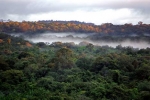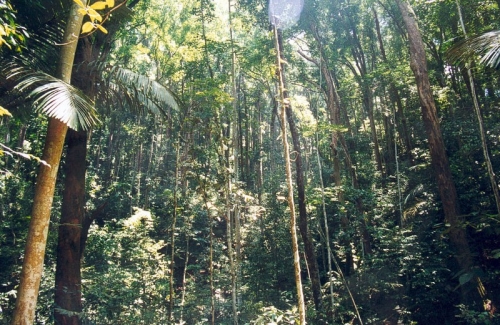
New estimates of U.S. researchers at the research center in Woods Hole and Boston University and Maryland, have shown that the storage capacity of tropical forests would be 20% higher than what had been estimated earlier scientific calculations.
It is no longer a secret: the forests are great carbon sinks which play an essential role in the ecosystem. But if this forest heritage has been the subject of much research, it seems that nobody knows everything about it. Indeed, U.S. researchers of the Research Center of Woods Hole and Boston University and Maryland have studied the issue and argue that tropical forests are 20% more beneficial in the absorption of carbon dioxide present in the air than we previously estimated.

According to these studies published in the journal Nature Climate Change, it would be so close to 228.7 billion tons of carbon would be stored within these tropical plants. And Indonesia and Brazil account for the largest amounts sequestered with respectively 53.2 and 18.6 billion tons, or about 31% of the total. But to achieve these results, the researchers worked minutely: they determined the carbon storage capacity of each square of 500 meters on each side that make up the area occupied by the tropical vegetation of the Americas, Africa and Asia. A study that was done on data provided by countries and also in the field.
From there, the team developed a tool to calculate the storage capacity of CO2. A tool therefore also assesses the impact of deforestation on a national scale. The study shows that deforestation is responsible for the issuance of one billion tons of carbon per year on average over the period 2000-2010. It would represent between 6 and 17% of all CO2 emissions
Found on : Maxisciences.com [TBTE]

